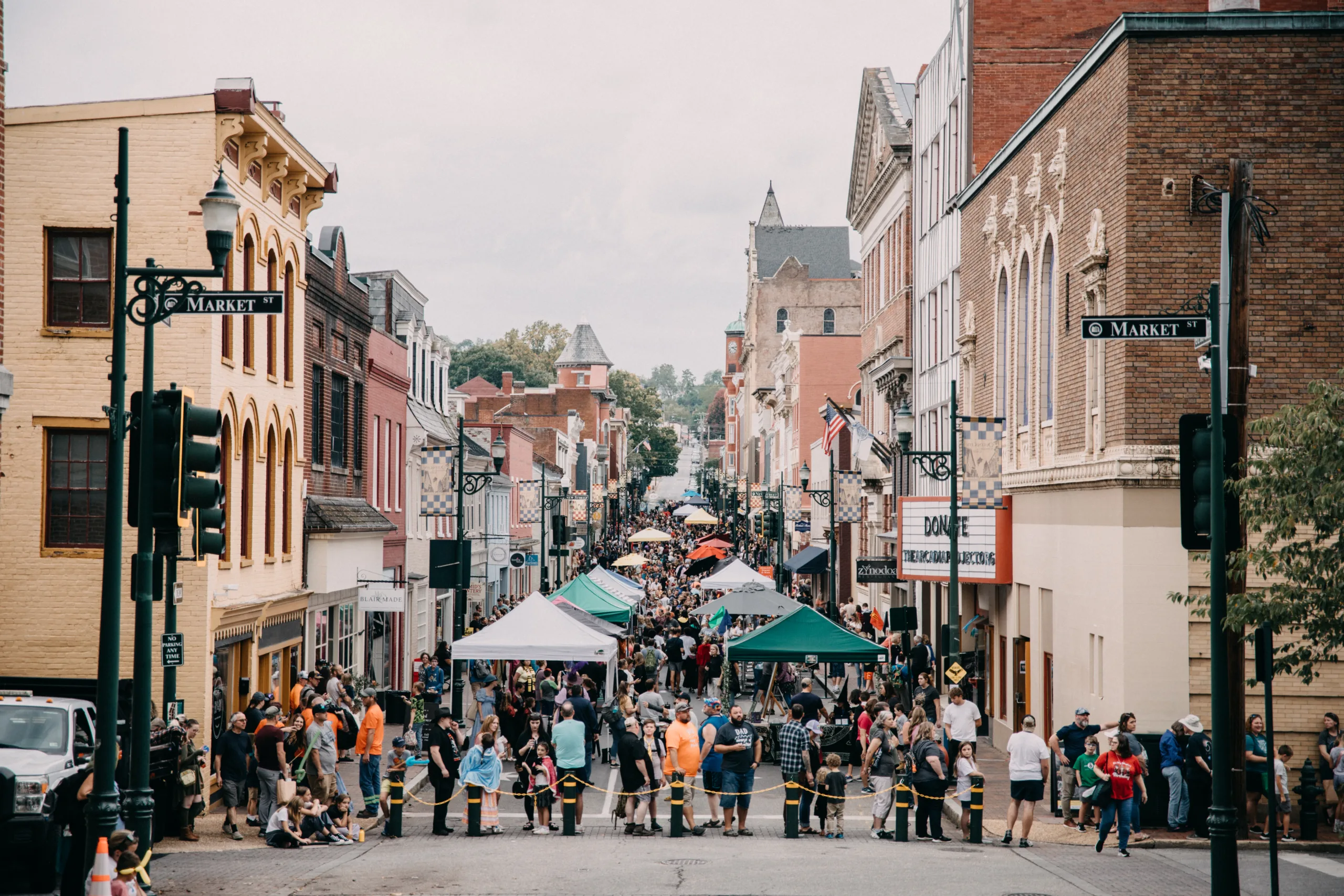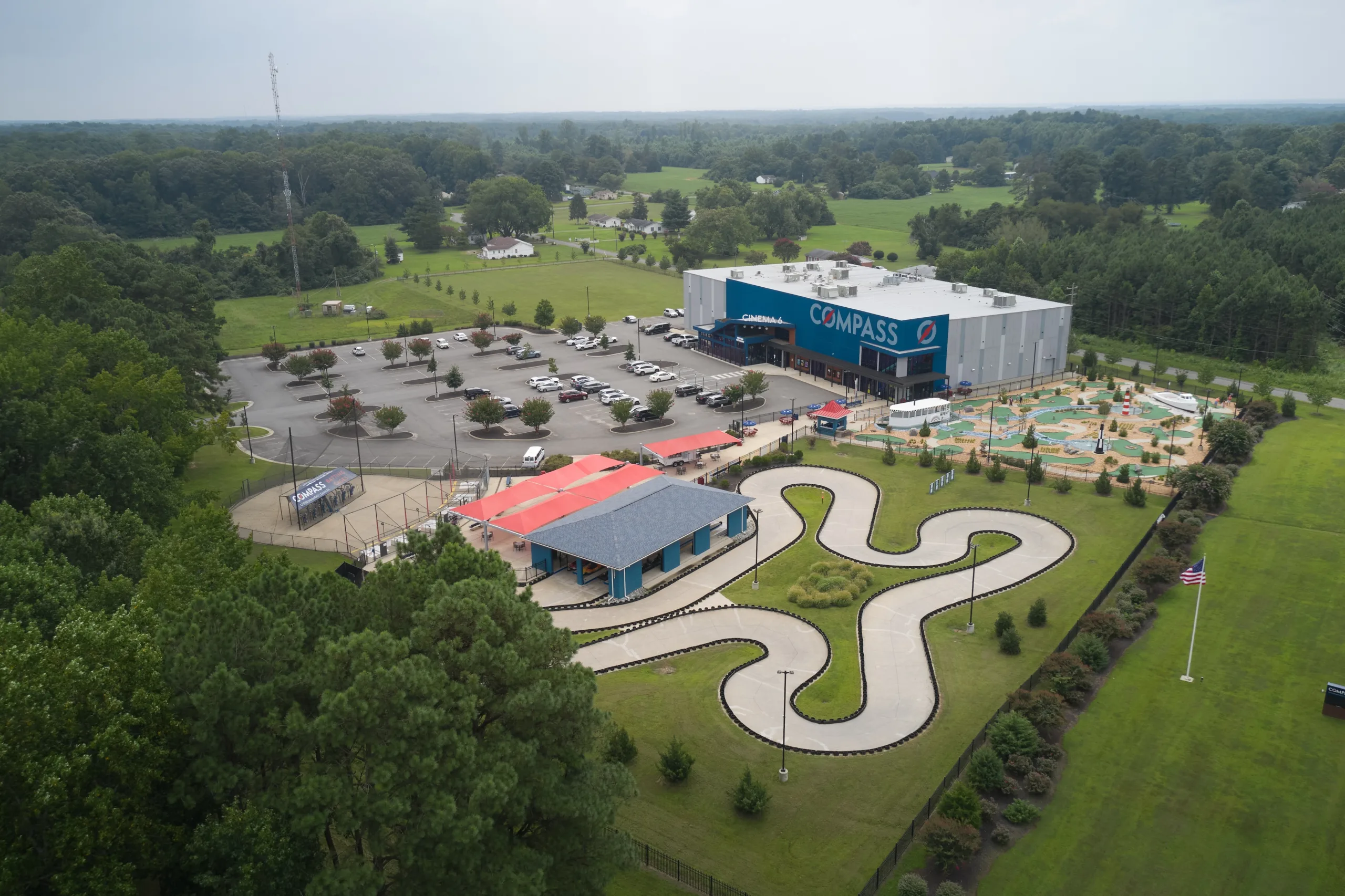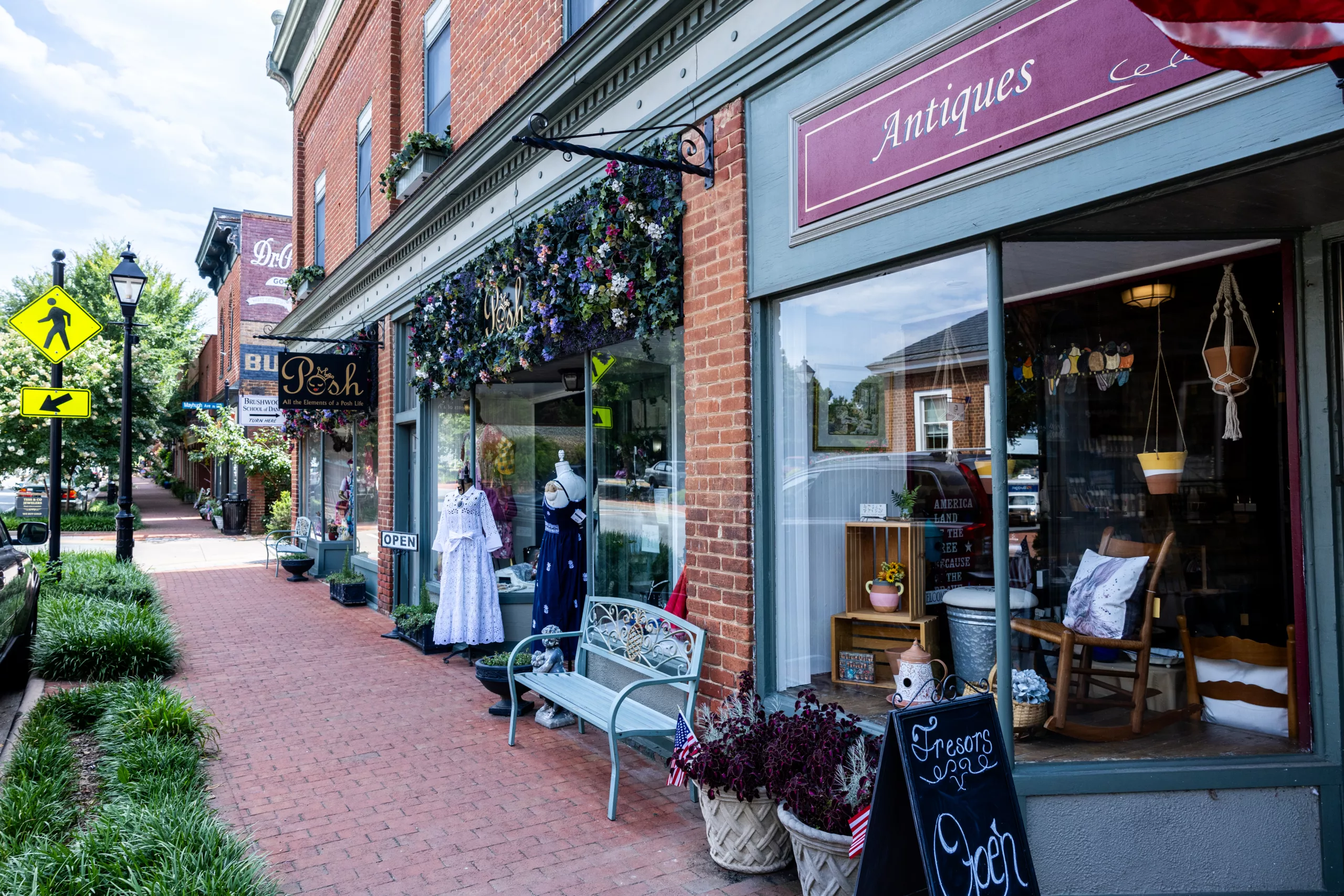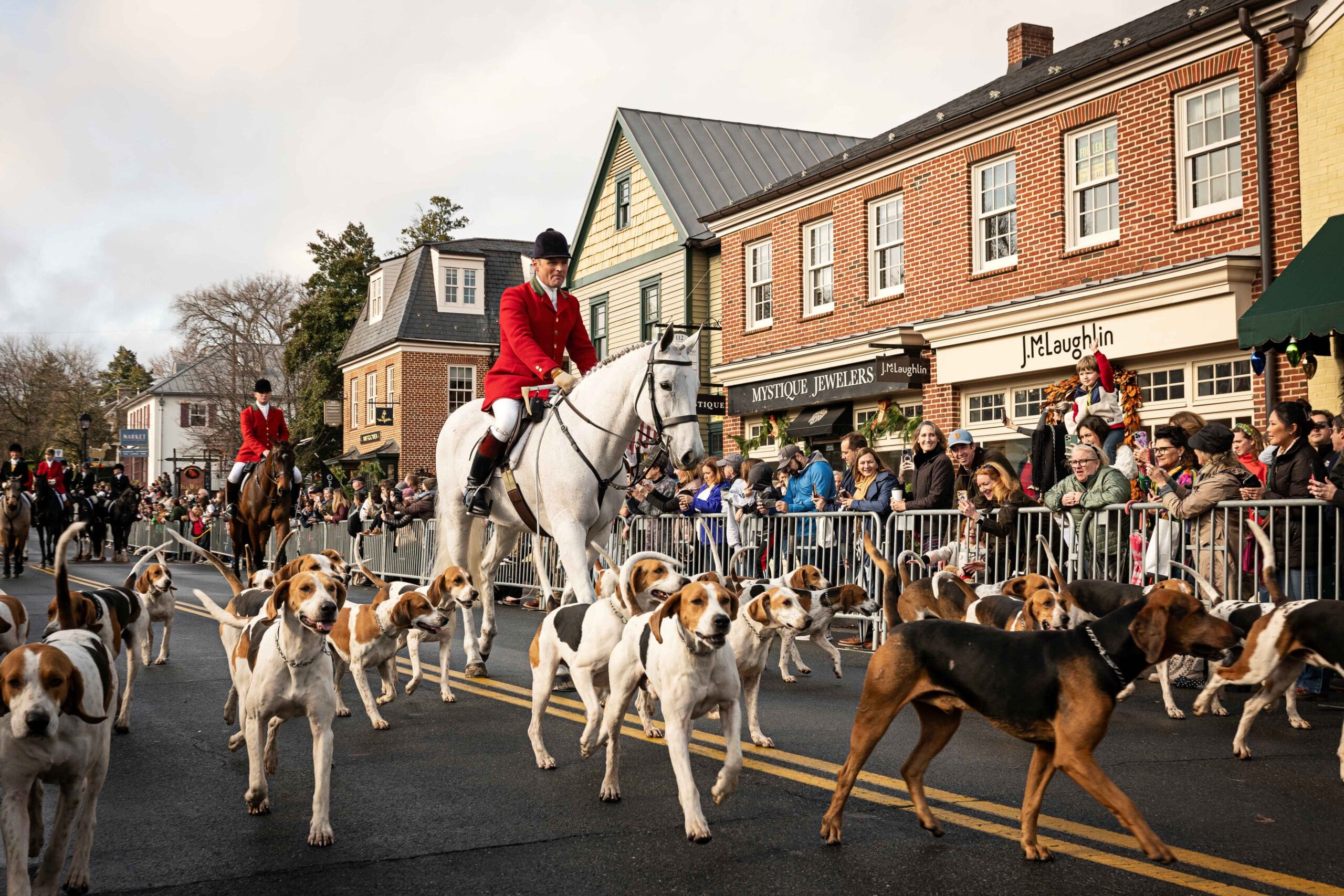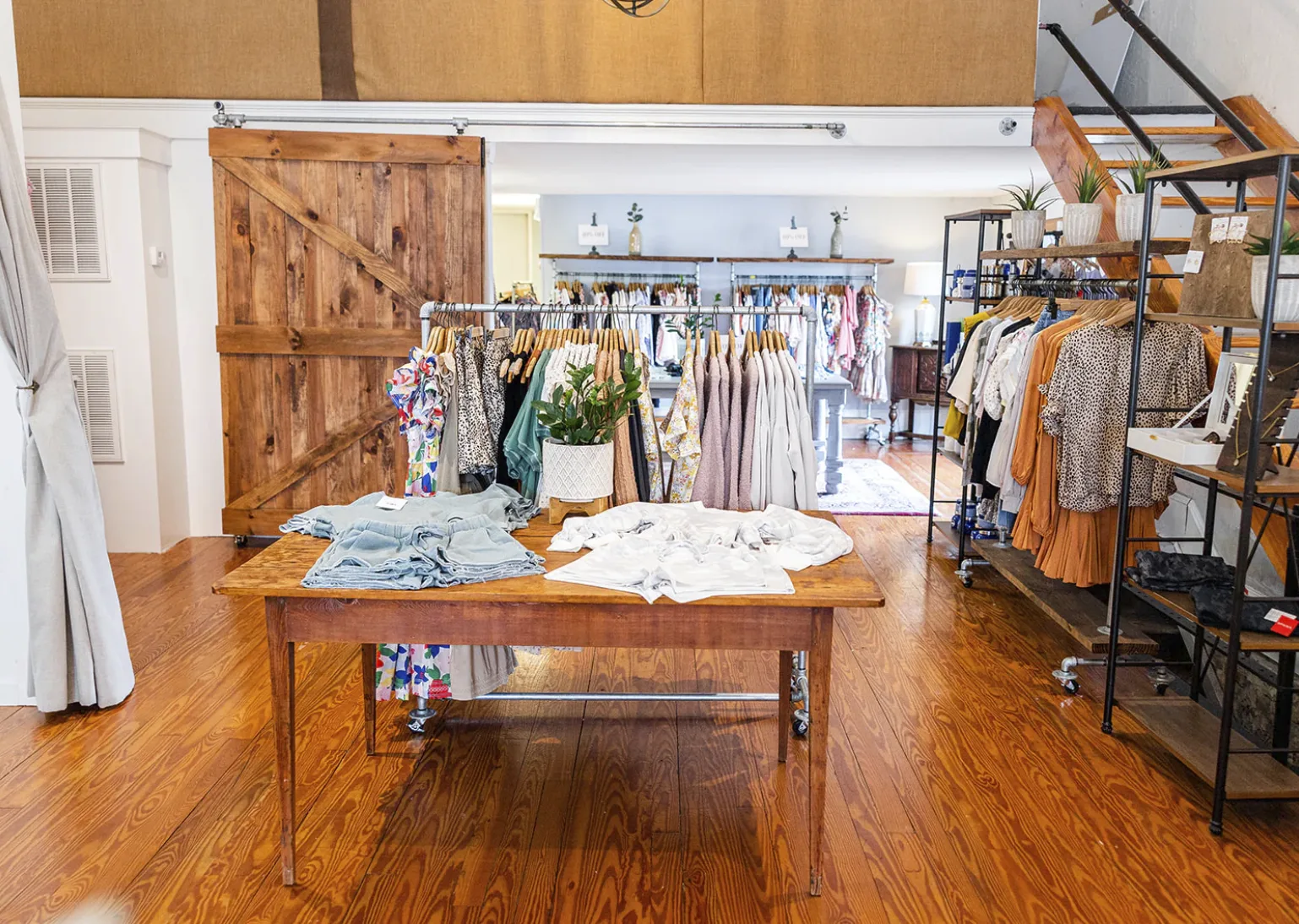Tucked away in Henry County, the small but mighty city of Martinsville has reinvented itself.

Virginia Hamlet at Hamlet Vineyards.
Martinsville-Henry County natives know that the best introduction to their county is by a less efficient—and therefore, non-Google-map-generated—route. For a weekend adventure at a leisurely pace, avoid the highway and head down Route 220. There, nestled at the bottom of the Piedmont region, are Henry County and the city of Martinsville, an hour or less from Roanoke, Smith Mountain Lake, and Danville. Founded in 1777 and named for Patrick Henry (“Give me liberty, or give me death!”), Henry County includes small towns like Bassett and Stanleytown located along the Smith River—which boasts some of the best trout fishing in the Commonwealth.

Jeb Bassett at Bassett Furniture Industries.
Sit Back and Relax
Begin your trip in Bassett, which takes its name from the family that founded Bassett Furniture in 1902—one of many furniture companies in the region at the time. Nowadays, Bassett Furniture Industries, which specializes in handcrafted wooden furniture, is a publicly traded company that employs 325 people in the area and 2,625 nationally. It’s operated by fourth-generation cousins Jeb Bassett, the senior vice president and chief operating officer, and Rob Spilman, the chairman and chief executive officer. At 61, Jeb remembers the first time he visited his father, grandfather, and uncles in the factory: “I saw a man riding by with a forklift, and I thought, that’s what I wanted to be when I grow up.” During the 1960s and 1970s, Jeb explains, the local textile and furniture industries were so successful that they were considered an economic barometer for the rest of Virginia, but by the “late 1990s and early 2000s, lots of tough decisions [were] made with the globalization of furniture.” Bassett Furniture, which has remained committed to domestic production, introduced its BenchMade series in 2005, which Jeb calls “furniture’s version of craft beer” and “the thing we’re most proud of,” in part because it allowed the company to hire back previously laid-off furniture and textile artisans. Today, only a handful of other companies remain in the area, including Hooker Furniture Corporation in Martinsville—although the legacy continues in a number of stores and outlets.
While you’re in town, stop by the recently restored Historic Bassett Train Depot, which dates to the 1920s and ran passenger trains until it ceased operations in 1957. The depot was renovated and reopened in 2019 with financial help from the Appalachian Regional Commission and local businesses. It’s available for rent and live music events, and hosts the Henry County Furniture Museum in its breezeway.

Hamlet Vineyards’ Eltham Meritage.
Across the street from the depot, you’ll find Smith River Outfitters, a weekend operation perfect for renting a canoe, kayak, or stand-up paddle board for use at nearby Philpot Lake and Dam, which provides river access and walking and biking trails. Founder Brian Williams also leads guided tours of the river and fly-fishing expeditions. Williams and Virginia Hamlet, who founded Hamlet Vineyards with her family, have teamed up this year to host Wine & Water Wednesdays through September, which combine a trip down the river with a gourmet dinner at the vineyard.
To visit the winery by car instead of boat, follow either Route 57 or Riverside Drive south for a couple miles. Hamlet—a trained architect who grew up in Martinsville and returned to raise her kids—and her husband planted their first grape vines in 2010. For Hamlet, the vineyard was a way to bring “comfort” to people during a period of high unemployment in the area. Over the years, the barn at the vineyard has become a welcoming space that she calls “a little community living room” filled with adults, parents, and even kids finishing homework. Once you’ve tasted the award-winning wine (the vineyard won four silver medals and a gold in the 2020 Virginia Governor’s Cup competition) and admired the view, head down Route 57 another 10 miles to Martinsville proper.

Rising Sun Breads
Booming Business
Founded in the late 18th century, Martinsville was incorporated in 1873 and designated a city in 1929. For much of its first hundred or so years, the area was farmed for tobacco. In the 20th century, tobacco was replaced by furniture and, following World War I, textile manufacturing, leading to economic, building, and population booms. Unfortunately, the booms were followed by a bust. As Jeb Bassett mentioned, factories were relocated during the 1990s and workers lost their jobs, a trend that continued during the Great Recession of 2008. Martinsville Mayor Kathy Lawson, a nearly lifelong resident who is completing her second term, remembers that “so many people were unemployed, some had to relocate to find a job. … It was a struggle for a lot of our citizens. Our city had to reinvent itself.”
Today, with a population around 13,000 in the city center and a little over 50,000 in the surrounding area, Martinsville-Henry County has been transformed. Over the last decade, residents have reshaped the area into an affordable, thriving, and livable community with a small-town vibe and beautiful river vistas. Martinsville has low unemployment and crime rates, successful small businesses, and high-speed internet (which can be rare in rural areas). Coupled with affordable living costs and home prices well below the national average, Martinsville is a great place to live, says Lawson.
Tim Martin, president of the Fred Martin Association, helped start the trend. A native of the area, Martin traveled the world in the 1980s, buying and selling inventory for his family-owned chair company, Martin Walker Inc. He remembers the shock he felt when he returned in 1993 and discovered that 61,000 jobs had been erased in six months. Martin and his father scooped up empty buildings and land across the county as investment properties, including the Martinsville Novelty Corporation Factory, built in 1929 but vacant after the factory closed in 1995. Later, the Landmark Group Historic Real Estate Development, based in Winston-Salem, North Carolina, developed the factory into a 60-unit apartment complex—renamed the Martinsville Lofts—that retains original details, such as generators and time clocks. “I think it’s a great way to save some of our heritage and still bring it into the 21st century,” says Martin.

Circus elephant mural on Franklin St.
Others have followed suit, creating a revitalized downtown known as Uptown Martinsville that boasts many historic buildings, predominantly in the Classical-Revival or Romanesque-Revival styles. Among them is The Henry, the modern incarnation of the historic Henry Hotel. Built in 1919 and on the National Register of Historic Places, the converted hotel opened in 2015 as a 25-unit loft apartment complex with ground-floor commercial businesses including Books and Crannies, an independent bookstore that opened in 2016 after owner DeShanta Hairston won the Startup Martinsville program, and Sparkle Me Pretty, a boutique women’s clothing store also founded in 2016. Farther down East Church Street is Uptown Pinball, a popular family destination featuring pinball and arcade machines, a restaurant, and a laser tag arena.
If you’re looking for something to eat in Uptown, try the unassuming Daily Grind Coffee House & Café, which makes delicious sandwiches and good, strong coffee, or, if you’re visiting on a Saturday or Wednesday, stop by the farmers’ market on Main Street. The chicken tenders at Walsh’s Chicken are also highly recommended.
Nearby Starling Avenue is home to the city’s art and culture district, which includes museums with national clout. In association with the Smithsonian Institute, the Virginia Museum of Natural History interprets the Commonwealth’s natural history through a collection of more than 10 million items, including dinosaur skeletons. A short walk down the road past the restored Historical Little Post Office, circa 1893, and an outdoor sculpture garden takes visitors to Piedmont Arts. Founded in 1961 and housed in a converted residence, Piedmont Arts is a visual and performing art museum as well as a Virginia Museum of Fine Arts statewide partner. Executive director Heide Pinkston calls Piedmont Arts the “cornerstone of the arts in Martinsville-Henry County,” noting that the museum welcomes an average of 16,000 visitors annually. Pinkston adds, “Last year alone [we] welcomed visitors from six countries and 18 states.”

The Uptown Martinsville Farmers’ Market is a bustling part of town.
Redevelopment has occurred in pockets. For more dining choices, head southeast toward an older part of the city to visit three restaurants conveniently clustered together. Rising Sun Breads is an organic bakery that offers baked goods and sandwiches, while Third Bay Café promises sit-down dining options like crab cakes, pork chops, and ribeye. Hamlet Kitchen, opened last year by Virginia Hamlet, falls between with prepared gourmet foods, wine, and catering. After working with nonprofits like Harvest Foundation, Hamlet was inspired to find other ways to revitalize her community. “I thought maybe for me it was to start a small business that makes people feel good,” she said. “Every reasonably sized town has a beautiful grocery store where you get prepared foods. … I sort of shifted my focus to think, what can we give to the community to make it a nice place?” She envisions Hamlet Kitchens as a niche service that serves seafood and frozen entrées alongside sandwiches, appealing to older people, working families, and busy moms.
Even if you’re not a fan of stock car racing, a trip to Martinsville isn’t complete without visiting the Martinsville Speedway, which dates to 1947 and is open for self-guided tours of its .526-mile track. Hailed as the shortest track on NASCAR’s Cup Series Circuit, the famous speedway is also the longest-running NASCAR Cup Series track. After exploring the Speedway, cap off your visit to Henry County with one last stop: Dippers Ice Cream, an ice cream stand nearby. Grab a cake cup sundae—try the Dirt Road—and play a round of cornhole before you program your GPS for home.
This article originally appeared in our August 2020 issue.



